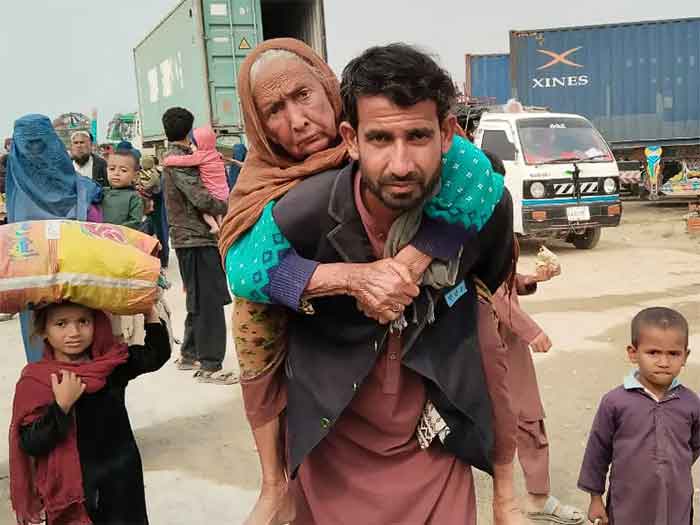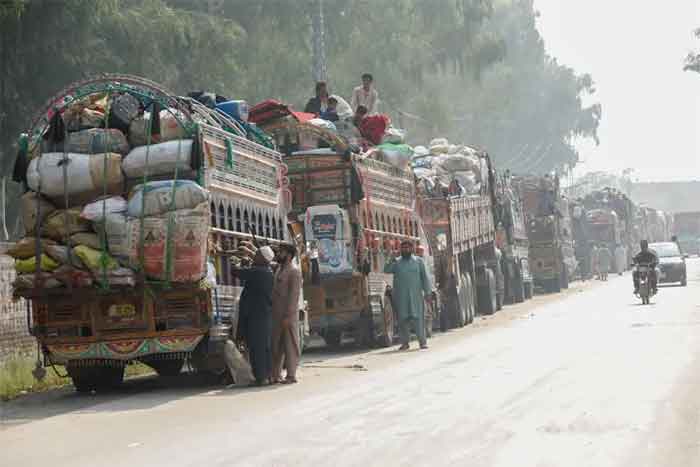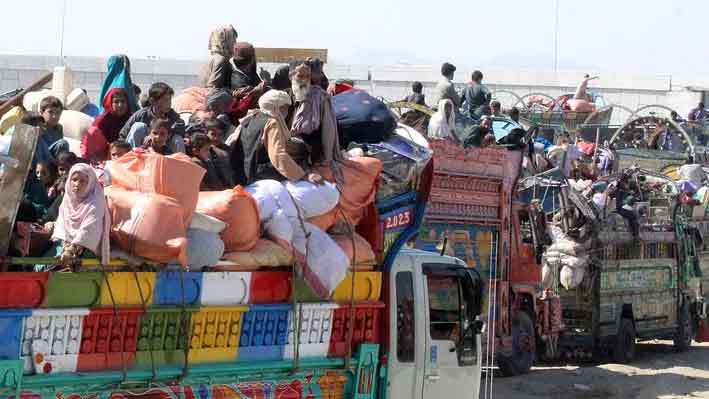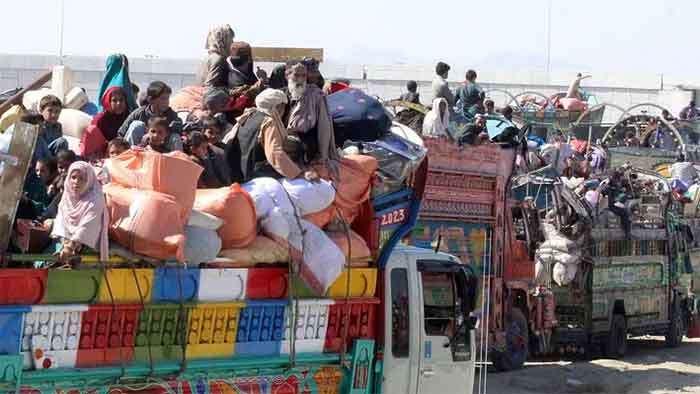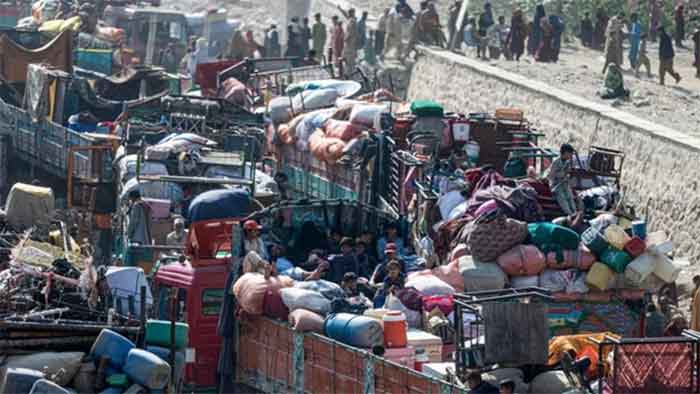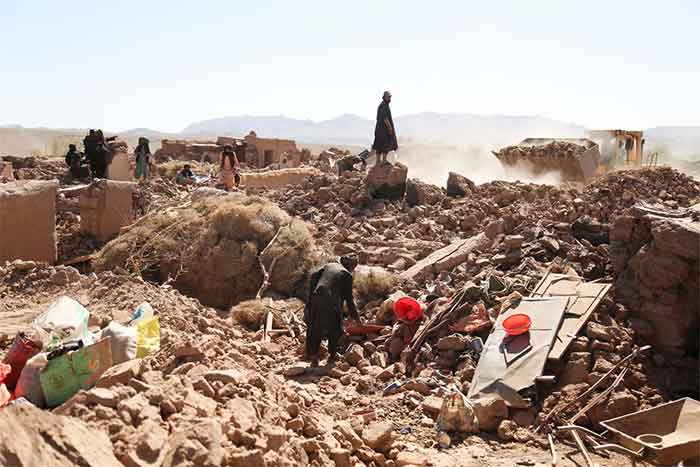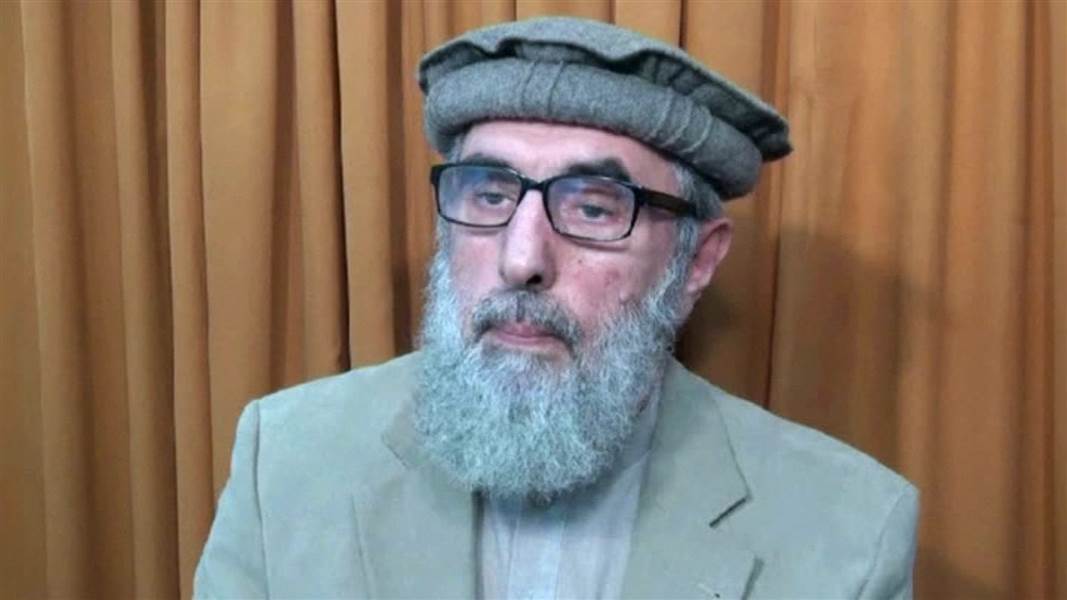
Lord Palmerston, the 19th century British Prime Minister, has famously said: “The Great Britain has no friends, no enemies, but only interests.” It was rephrased by Henry Kissinger as “America has no permanent friends or enemies, only interests.” This applies to current Afghan politics where Gulbuddin Hekmatyar, a former anti-Soviet “mujahideen” commander, arrived in the capital on Thursday (May 4) under a peace deal with the US/EU-client Afghan government.
According to Anadolu News Agency of Turkey, Hekmatyar, who heads the Hezb-e-Islami party, drove all the way from eastern Nangarhar province and entered the city in a heavily-armed convoy of armored vehicles and pick-up trucks packed with his top commanders and fighters.
Later, President Ashraf Ghani warmly embraced him at a special ceremony in the presidential palace and hailed the peace deal. “The talks proved that the Afghan people have no problem with each other, but because of outside hands, have occasionally witnessed conflict,” the president said in his address at the ceremony. “Afghans are victim of international terrorism,” President Ashraf Ghani said.
On his part, Hekmatyar vowed to fully support the government in Kabul in its efforts to bring peace and stability in the country. He also urged Afghan tribes to unite for the sake of defense of their areas against the enemy.
Hekmatyar also offered to act as a mediator between the Taliban and the government. “I call the Taliban ‘my brother’, good and bad people are among them. Taliban are Afghans. “Let’s end the war, live together as brothers and then ask foreigners to leave our country,” he said.
The Afghan government had released at least 55 prisoners associated with his party before the war veteran arrived in the capital in line with the September 2016 peace deal.
The peace deal
The peace deal between Hekmatyar and the Afghan government has been widely hailed by the West.
In a statement on Thursday, the European Union and Norway said they back the peace deal.
“We hope that Gulbuddin Hekmatyar’s arrival in Kabul encourages the wider public belief that peace in Afghanistan is possible. This signifies the moment for others to move from conflict to constitutional politics. Hence, the EU, its member states in Afghanistan and Norway call upon all armed opposition groups to come forward, commit to an equitable peace and renounce terrorism,” the EU’s Special Representative, Ambassador Franz-Michael Mellbin, said.
In September last year, the Guardian reported the peace deal under the title: ‘Butcher of Kabul’ pardoned in Afghan peace deal. The British daily report said:
“The Afghan government has pardoned one of the country’s most notorious warlords for past offences including terrorist attacks and alleged war crimes as part of a peace deal with his militant group, Hezb-i-Islami. The agreement, signed after months of negotiations, paves the way for a return to public and possibly political life for Gulbuddin Hekmatyar, who holds an almost unparalleled record of human rights abuses. These include indiscriminate shelling of civilians, targeted assassinations of intellectuals and disappearances of political opponents. Hekmatyar’s followers are accused of throwing acid at women and of running an underground torture prison in Pakistan. The accord also allows for the release of Hezb-i-Islami prisoners, and obligates the Afghan government to pay for security in two or three locations inside Afghanistan where the group can choose to settle its leadership.”
Not surprisingly, Human Rights Watch called the deal “an affront to victims of grave abuses”. The HRW, in a statement said: “Gulbuddin Hekmatyar, one of Afghanistan’s most notorious war crimes suspects, who as prime minister in 1992 shelled his own capital, is coming home after decades in exile, thanks to a peace deal with the national unity government. His return will compound the culture of impunity that the Afghan government and its foreign donors have fostered by not pursuing accountability for the many victims of forces commanded by Hekmatyar and other warlords that laid waste to much of the country in the 1990s.”
Others see the inclusion of the armed opposition as a necessary step towards peace.
According to the Global Security, “this was the first peace agreement in the 15-year Afghan war the Taliban launched after it was ousted by a United States-led military coalition in 2001. Led by former Afghan Prime Minister Gulbuddin Hekmatyar, the insurgent group Hizb-e-Islami is the second largest after the Taliban. While the Hizb-e-Islami faction fought alongside the Taliban against NATO coalition forces, it had been a rival to the Taliban while it was in power. The Global Security added:
“He was designated a terrorist by the U.S. in February 2003 for his past support to al Qaeda. On 19 February 2003 it was announced that the US Government had information indicating that Gulbuddin Hekmatyar has participated in and supported terrorist acts committed by al-Qa’ida and the Taliban. Because of his terrorist activity, the United States designated Hekmatyar as a Specially Designated Global Terrorist under the authority of Executive Order 13224. At the same time, the United States requested that the UN 1267 Sanctions Committee include Hekmatyar on its consolidated list of entities and individuals associated with Usama bin Laden, al-Qa’ida, and the Taliban, which would obligate all Member States to impose sanctions, including assets freezes, under UN Security Council Resolutions 1267, 1390, and 1455.”
Tellingly, the U.N. Security Council’s Sanctions Committee removed sanctions against Hekmatyar on February 3, 2017.
The return of the former ‘Mujahedeen” commander return to Kabul after almost 20 years affirms that the world we live in has no permanent friends or enemies, only interests.
Abdus Sattar Ghazali is the Chief Editor of the Journal of America (www.journalofamerica.net) email: asghazali2011 (@) gmail.com

